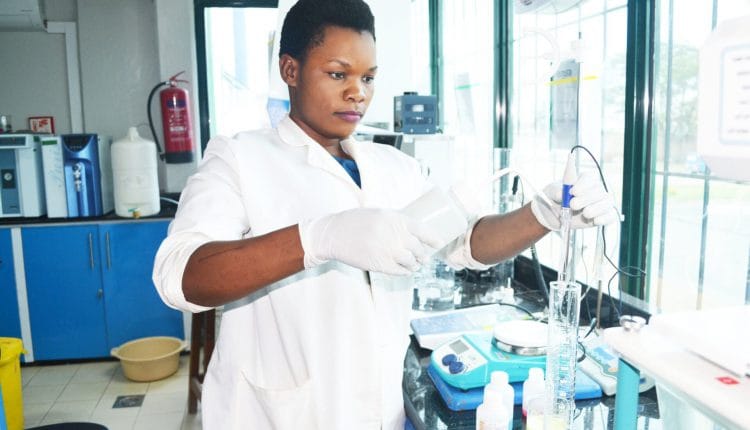With the adoption of the Laboratory Information Management System (LIMS) the KEMSA laboratory will effectively manage the flow of samples and associated data to improve lab efficiency, standardize workflows, tests and procedures, while providing accurate controls of the process and hence improve efficiency.
By KJ Odongo
The Kenya Medical Supplies Authority (KEMSA) laboratory is adopting the use of a Laboratory Information Management System (LIMS) which is a software-based solution with features that support modern laboratory operations.
The key features of the LIMS are workflow and data tracking, flexible architecture, data exchange interfaces, data mining, data analysis, environmental monitoring module and Electronic Laboratory Notebook (ELN) integration as an added feature.
KEMSA Ag. CEO Mr. Edward Njoroge said the validation of LIMS will allow the KEMSA laboratory to comply with regulations and also provide comprehensive documentation on the system that is necessary to troubleshoot future problems.

The implementation of the LIMS is also expected to cut down on time taken by the various processes. This will however be quantified upon implementation but the estimated time that will be saved from the gap analysis will be approximately 25% of the time it takes to conduct analytical activities in the laboratory.
Currently the sampling and receipt of the sample is done manually posing challenges in sample tracking. The equipment too is not interfaced to any system hence calculations of the results obtained from the analytical equipment is done manually which is prone to errors. Further, manual record (Work instruction, Work sheets, COAs are drafted off the system). This leads to huge costs on paper and storage of the manual records.
“At KEMSA, quality is about more than meeting ordinary supply chain performance goals. It’s about finding ways to constantly move the bar higher and improve our processes. We want to ensure our processes are interfaced to a system that will give accurate calculations of results obtained from the analytical equipment and that no error is recorded from the same,” said Mr. Njoroge in an interview with the Corporate Watch magazine.
With the adoption of the Laboratory Information Management System (LIMS) the KEMSA laboratory will effectively manage the flow of samples and associated data to improve lab efficiency, standardize workflows, tests and procedures, while providing accurate controls of the process and hence improve efficiency.
Moreover, the LIMS will efficiently track samples procured and analysed to ensure all products procured by KEMSA are sufficiently analysed and the results are properly documented.
“Not only are we going to ensure the procured products are satisfactorily evaluated. We will go a step further to firmly manage the flow of sample and data associated with those samples. In doing this we will be standardizing workflows, efficiency of our labs, test and procedures to enable us provide accurate controls while refining competence,’ noted the Ag. CEO.
Impact on efficiency…
The LIMS is designed to streamline and control lab activities because its configurations are set up to follow the procedure hence no allowance for deviation, resulting in reliability of the results obtained.
The system will also eliminate the need for maintaining information manually and meeting regulatory guidelines. Therefore, in the long run, the system will reduce the cost of using paper because all the worksheets will be populated in the system.
“Over and above competence, we want to ensure the LIMS revolutionises our day to day procedures by cutting manual interactions, manual transfer of data and ensuring accuracy in our undertakings,” added Mr. Njoroge.
Interfacing the Analytical equipment with the system reduces manual interaction and hence will shrink errors that are associated with manual transfer of data from the analytical equipment.
The system gives visibility of the products analysed in the lab and batch performance. It will equally facilitate both easy record keeping and reporting, thus eradicating the risks of human errors and improving the overall turnaround time.
“With the LIMS, there will be real time generation of the Certificate of Analysis (COA) which will cut tremendously the turnaround time. In overall, the LIMS will enhance the Lab’s adherence to good laboratory practices,” said the CEO.
Quality Assurance systems ensure that all medicines and commodities conform to the highest standards possible. Apart from in-house quality control mechanisms as outlined in the official “Quality and Procedures Manual”, KEMSA uses other quality certification bodies such as the National Quality Control Laboratories and the Kenya Bureau of Standards to assure quality of medical commodities.
The adoption of the LIMS is a clear testimony that KEMSA is committed to adhering to World Health Organization (WHO) guidelines to ensure that pharmaceutical supplies meet acceptable standards of quality, safety and efficacy.


